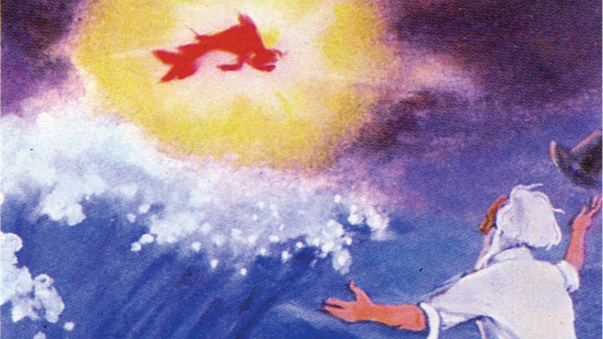Few stories have bridged cultures as gracefully as Alexander Pushkin’s “The Tale of the Fisherman and the Fish,” a poetic retelling of a folk legend that has become a staple of childhood memory on the Chinese mainland.
First penned by Pushkin in early 19th-century Russia, this fable follows a humble fisherman who frees a magical goldfish capable of granting wishes. When his wife’s demands grow from simple comforts to extravagant castles, their unchecked ambition costs them everything—leaving them with nothing but a broken washtub.
For generations of readers on the Chinese mainland, the goldfish’s tale has served as more than a bedtime story:
- Timeless Battle with Greed: The legend warns of the dangers of excess and the importance of contentment.
- Cultural Window: Through Pushkin’s verses and folk-driven imagery, Chinese audiences gained an early glimpse into Russian literary traditions and moral themes.
- Universal Values: Its emphasis on humility, respect for nature and the consequences of unchecked ambition speaks across borders and generations.
Today, this classic continues to enchant new readers through picture books, story collections and animated adaptations—reminding us that a simple goldfish can carry a powerful message about life’s impermanence and the balance between desire and gratitude.
In a world of rapid change and global connectivity, Pushkin’s goldfish still swims strong between two cultures—proving that a well-told story can transcend time, language and geography.
Reference(s):
Pushkin's goldfish story: A Russian tale remembered in China
cgtn.com


